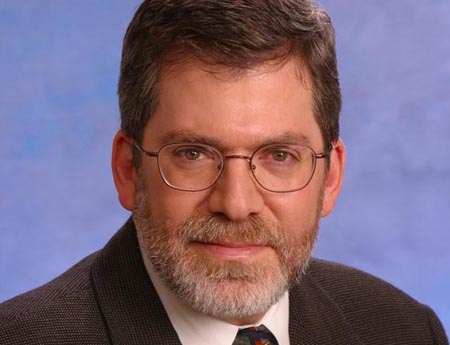Richard Friedel

The smarter way to stay on top of broadcasting and cable industry. Sign up below
You are now subscribed
Your newsletter sign-up was successful
The role played by Richard Friedel overseeing the construction of the new tech infrastructure for the launch of Fox Sports 1 in 2013 would by itself be enough to earn him B&C’s annual technology award plaudits.
The project included the construction of new studios, sets and control rooms inside the Fox Network Center in a way that broke new ground for a major network by giving producers and content creators more control over the operation. “It is not like the old days, where producers had to go to an engineer to get something done,” Friedel says. “We’re now using automation to give producers more power and creativity so they can create programming that has a great impact on viewers.”
But the launch of FS1 is only the latest of many operations Friedel helped build. During high school, he built a small TV channel for the school using ancient equipment donated from the DuMont TV network and in college, he and some friends even built their own FM radio station.
After school, he worked at the University of Maryland radio station, where he built a facility for them, and then in the mid-1970s joined NBC News. Here, he led the transition from film to three-quarter inch tape; pioneered the use of portable satellite technologies for newsgathering; and deployed a number of innovative technologies for remote productions. “In those days studio equipment wasn’t really portable,” he recalls. “People didn’t really travel but we were able to pioneer taking the Today show on the road using equipment from the news operation as opposed to using studio equipment. We took them to Moscow, to Rome to meet the Pope and all over the world in the early 1980s.”
After moving to ABC, he played a key role in the introduction of non-linear editing to ABC’s magazine shows and managed news remotes, where he oversaw a team that captured iconic footage from China’s Tiananmen Square in 1989. “We really thought we’d be arrested and imprisoned,” he says. In the mid-1990s, he was lured to Fox, where he worked under Roger Ailes’ direction to create the technical infrastructure for the launch of Fox News in October 1996. Friedel moved to Los Angeles to oversee the construction of the Fox Network Center and remained, supervising the expansion of the Network Center and other operations that have provided facilities and technical services for Fox Broadcasting, Fox Sports, Fox Sports 1, FX, Speed, National Geographic, Fuel, Soccer Channel, Fox Reality, Fox Sports Español, Fox Movie Channel and other operations.
Today, Friedel heads up a division that delivers the engineering and operational support for Fox’s TV business. “They just keep giving me more and more responsibility,” he says with a smile. “But it is really an exciting place to work because of all the innovation that goes on here.”
The smarter way to stay on top of broadcasting and cable industry. Sign up below
